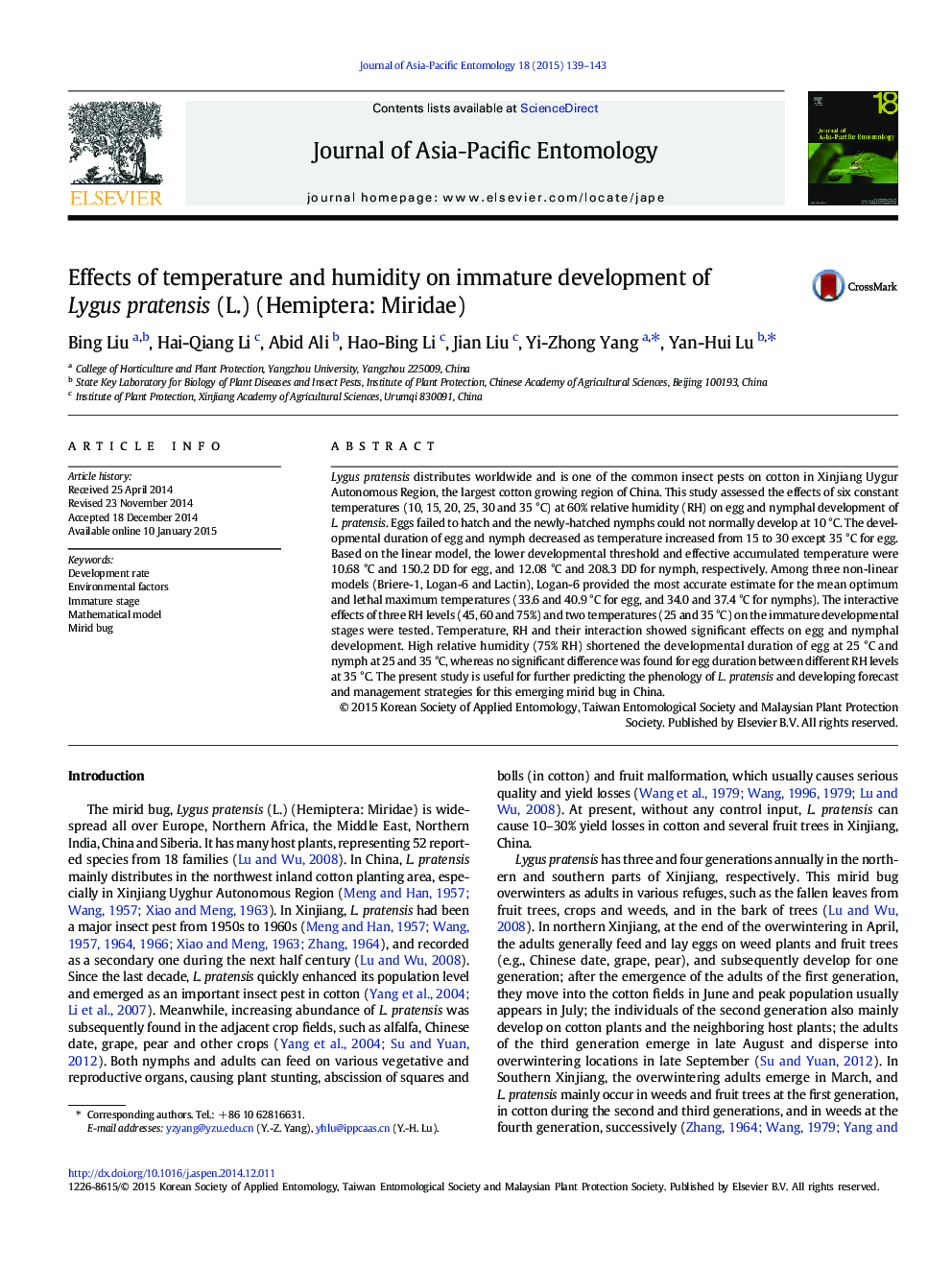| Article ID | Journal | Published Year | Pages | File Type |
|---|---|---|---|---|
| 4524451 | Journal of Asia-Pacific Entomology | 2015 | 5 Pages |
•Lygus pratensis successfully developed from egg to adult at 15–35 °C.•Linear model was the best to estimate the lower temperature threshold.•Logan 6 model was well fitted to the data of developmental rate.•Both temperature and humidity affected immature development.
Lygus pratensis distributes worldwide and is one of the common insect pests on cotton in Xinjiang Uygur Autonomous Region, the largest cotton growing region of China. This study assessed the effects of six constant temperatures (10, 15, 20, 25, 30 and 35 °C) at 60% relative humidity (RH) on egg and nymphal development of L. pratensis. Eggs failed to hatch and the newly-hatched nymphs could not normally develop at 10 °C. The developmental duration of egg and nymph decreased as temperature increased from 15 to 30 except 35 °C for egg. Based on the linear model, the lower developmental threshold and effective accumulated temperature were 10.68 °C and 150.2 DD for egg, and 12.08 °C and 208.3 DD for nymph, respectively. Among three non-linear models (Briere-1, Logan-6 and Lactin), Logan-6 provided the most accurate estimate for the mean optimum and lethal maximum temperatures (33.6 and 40.9 °C for egg, and 34.0 and 37.4 °C for nymphs). The interactive effects of three RH levels (45, 60 and 75%) and two temperatures (25 and 35 °C) on the immature developmental stages were tested. Temperature, RH and their interaction showed significant effects on egg and nymphal development. High relative humidity (75% RH) shortened the developmental duration of egg at 25 °C and nymph at 25 and 35 °C, whereas no significant difference was found for egg duration between different RH levels at 35 °C. The present study is useful for further predicting the phenology of L. pratensis and developing forecast and management strategies for this emerging mirid bug in China.
Graphical abstractFigure optionsDownload full-size imageDownload as PowerPoint slide
